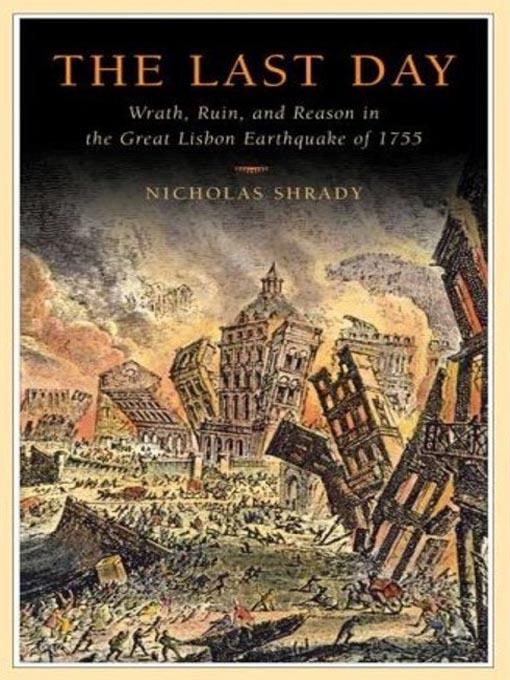
The Last Day
Wrath, Ruin, and Reason in the Great Lisbon Earthquake of 1755
فرمت کتاب
audiobook
تاریخ انتشار
2008
نویسنده
Patrick Lawlorناشر
Tantor Media, Inc.شابک
9781400176403
کتاب های مرتبط
- اطلاعات
- نقد و بررسی
- دیدگاه کاربران
نقد و بررسی

In 1755 Lisbon was shattered by earthquakes and resulting fires that were spread by the wind. Patrick Lawlor puts a great deal of emotion into his narration, making this historical account sound as fresh as a first-person disaster account on the evening news. Stories from contemporary sources, such as that of the man detailing his bruises and wounds, are the high points. Lawlor's dramatic style makes the world of 1755--with Portugal's growing empire and the Inquisition--come alive. Nicholas Shrady's meticulous research uncovers the aftershocks of a disaster and provides a detailed glimpse of an earlier age. J.A.S. (c) AudioFile 2008, Portland, Maine

January 21, 2008
The Lisbon earthquake of 1755 exerted a great cultural, religious and political impact, argues Shrady (Tilt: A Skewed History of the Tower of Pisa
) in this revelatory volume. On November 1 (both a Sunday and All Saints' Day) at 9:30 a.m., a titanic earthquake shattered the quiet, turning the pious city's packed houses of worship into crypts as their walls collapsed. Five days of firestorms consumed the buildings left standing and a tsunami drowned the benighted survivors who escaped toward the ocean. As Shrady deftly details, Europe was stunned by the merciless destruction of one of the continent's most opulent cities. Leading intellectual and philosophical figures—Voltaire, Rousseau, Pope, Goethe and Kant, among others—became fascinated by the question of divine intervention in human affairs. Lisbon, still home to the Inquisition, had been immolated: was this evidence of God's wrath or of God's nonexistence? The latter interpretation soon found its way into Voltaire's cynical, secularist Enlightenment masterpiece, Candide
. Within the decade, scholars had created the new discipline of seismology, and governments were taking their first faltering steps toward urban planning and disaster control. Shrady's account will find the same ready audience that delight not only in tales of catastrophe but in smart, stylishly written history.

























دیدگاه کاربران